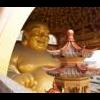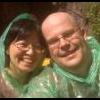Search the Community
Showing results for tags 'books'.
-
This can't be good news for accessing CFL from China - increased blockage of Google API services have already affected our performance China blocks thousands more websites as ‘Great Firewall’ targets cloud services An ongoing topic - click here for Most Recent Post
- 151 replies
-
- social media
- great firewall
-
(and 2 more)
Tagged with:
-
For six weeks, beginning Dec, 13, 1937 . . . Nanjing Massacre Memorial Day 2017 South China Morning Post
-
So I finished getting through the Three Body Problem Trilogy by Liu Cixin (translated by Ken Liu). It was okay. Of the 3 books I liked the last one "Death's End" the best, although I didn't.really get into any of them. For some reason I just didn't identify with, or feel interested in any of the characters. Also there seemed to be a plausibility issue for me with some of the portrayal of humanity as a whole.
-
https://www.theatlantic.com/international/archive/2019/11/dark-side-chinese-dream/602113/ This is an excerpt from a new book: "A Woman Missing in the Mountains" A Chinese American woman searches for her missing sister in China, encountering the dark side of the country's economic rise. An interesting read about what sounds like a tough, resourceful woman desperately trying to get ahead and escape a small village life. One of many stories in this book: "The Shanghai Free Taxi: Journeys With the Hustlers and Rebelsnof the New China" https://www.indiebound.org/book/9781610398145 Excerpt: As we drove on, climbing into the mountains, Crystal filled me in on her family’s history. She’d grown up in the 1970s and ’80s on a farm, and was eight years older than Winnie. The family lived in a one-bedroom mud-brick house with a dirt floor and a grass roof. They relied on government rations, which weren’t enough to feed them all. Crystal’s mother couldn’t produce milk for Winnie, who as an infant suffered from calcium deficiency, which Crystal thinks affected her little sister’s intelligence. “She was kind of slow,” Crystal recalled. “She studied so hard, but she never got good scores.” Had the sisters been born a decade or two earlier, they would have probably remained in the countryside and lived similar, circumscribed lives under Mao Zedong’s socialist system. But economic reforms by Mao’s successor, Deng Xiaoping, created something new: the opportunity to succeed and the chance to fail. Crystal moved to Harbin, the provincial capital, where she studied and became a nurse. Winnie left school at 16 and headed to Harbin as well, where she fell into the default profession for many uneducated migrant women―sex work.
-
I know we started a book discussion topic at some point but it's probably long lost in the paleontology here. I thought I would mention a great book I have been reading about China called, Out of the Gobi, by Weijan Shan. Shan is a globally recognized financier who went from literally nothing to a Ph. D. in Economics in 10 years. The book is a memoir, not a history, of his life, but quite revealing in its portrayal of life in China during the Cultural Revolution. He was sent to the Gobi desert as part of Mao's re-culturation of China in the mid-60's. He provides a deep discussion of what it was like to be uprooted from Beijing and sent to a place to work in the harshest of conditions, little food or water, with work every day going into the night. He was appointed a "barefoot doctor" for his company of men (and women), and then lost that job due to corruption of the local commanders. A lot of his writing explains to me why the Chinese are the way they are. Mao is still in the blood of our wives, husbands, and children now. Such things as why there is little display of affection, or an over-compensation for not having it. The one child policy. The complete separation of men and women, boys and girls. Entire families broken and sent to camps, never to be re-united. It reads like an adventure, but one steeped in sadness, and triumph. From the Foreword by Janet Yellen Weijian Shan's Out of the Gobi is a powerful memoir and commentary that will be one of the most important books on China of our time, one with the potential to re-shape how Americans view China, and how the Chinese view life in America. Shan, a former hard laborer who is now one of Asia's best-known financiers, is thoughtful, observant, eloquent, and brutally honest, making him well-positioned to tell the story of a life that is a microcosm of modern China, and of how, improbably, that life became intertwined with America. Out of the Gobi draws a vivid picture of the raw human energy and the will to succeed against all odds. Shan only finished elementary school when Mao Zedong's Cultural Revolution tore his country apart. He was a witness to the brutality and absurdity of Mao’s policies during one of the most tumultuous eras in China’s history. Exiled to the Gobi Desert at age 15 and denied schooling for 10 years, he endured untold hardships without ever giving up his dream for an education. Shan’s improbable journey, from the Gobi to the “People’s Republic of Berkeley” and far beyond, is a uniquely American success story – told with a splash of humor, deep insight and rich and engaging detail. This powerful and personal perspective on China and America will inform Americans' view of China, humanizing the country, while providing a rare view of America from the prism of a keen foreign observer who lived the American dream. * * * I highly recommend this book for anyone curious of how the history of China affects the ones we love, even when they may not be aware of how.
-
in the Sixth Tone If you've ever seen a Chinese person clean out a store in another country of stuff to cart home for their 'friends', it may have been a 'daigou' What a New Law Could Mean for China’s ‘Daigou’ Cross-border shoppers have become a multi-billion-dollar industry — but changing regulations could spell the end for the entrepreneurial sellers. http://image5.sixthtone.com/image/5/15/236.jpg Two Chinese ‘daigou’ drag bags through Dongdaemun Market in Seoul, South Korea, Nov. 14, 2016. VCG
-
I have read the following books over the past year and a half. They may be of interest to some on this forum. EMPRESS DOWAGER CIXI: THE CONCUBINE WHO LAUNCHED MODERN CHINA, by Jung Chang - a slightly different portrait of how she has been portrayed by others. ZHOU ENLAI: THE LAST PERFECT REVOLUTIONARY, by Gao Wenqian - biography by author that emigrated from China to America in 1993. THE CHINA MIRAGE: THE HIDDEN HISTORY OF AMERICAN DISASTER IN ASIA, by James Bradley - history of American interaction with China starting with the opium trade in the mid/late 1800s. Emphasizes effects of the "China Lobby" on U. S. policy backing Chiang Kai-shek
-
in the SCMP China’s online retailers pull Bible from shelves as Beijing gets strict on sale of holy text Searches for the religious book on JD.com, Taobao and Amazon.cn fail to produce results
-
Opened in 2013, we visited there in 2014 while applying for my new passport. The American Consulate is within a VERY short walking distance in Guangzhou's Zhujiang New City district. It holds approximately 3.5 million books in 100,000 sq. meters. It is located in Guangzhou's largest city square: 花城广场 (Huāchéng Guǎngchǎng) Huangcheng Square, or Flower City Square I took most of these pictures with the camera in panoramic mode to take in the full effect.About the above picture: Huangcheng Square, or Flower City Square, with the Guangzhou Tower in the background (between the flags and the library). The overhang on the left is the library.
-
from signature-reads.com Chasing the Dragon: 25 of the Best Books on China By SIGNATURE March 28, 2017 http://assets.signature-reads.com/wp-content/uploads/2017/03/wish-lanterns-e1490637732835.jpg
-
My guess is that it's not just for kids . . . from the Global Times Chinese sex education textbooks sell like hotcakes, despite controversy over explicit content http://www.globaltimes.cn/Portals/0/attachment/2017/2017-03-09/48fddb1c-7335-47f1-87d4-080299f4386e.jpeg
-
A new book, covering the Xi Jinping administration, that you may or may not be interested in. I think I'll pass, myself, since I expect it's pretty much the author's point of view (who's else would it be, right?). He seems to be primarily political (Democracy) and economic from Wikipedia - The Xi regime is definitely different from the Hu Jintao regime which preceded it - don't let anyone tell you that it's the PARTY that makes the decisions, that it doesn't matter WHO is premier. So this book may be of interest, but more so at an introductory level. Let me know what you think. At Amazon. The reviews aren't helpful, in my opinion. The Perfect Dictatorship: China in the 21st Century Paperback – September 6, 2016by Stein Ringen (Author)
-
Even if you're NOT involved with legal or contractual issues, this is an interesting series, and I think is pertinent to ALL aspects of our dealings with Chinese people and their culture. 5,000 years of culture? They've only had the last 30 years to learn to deal with the hangover from the first 4,970 years. Many of their laws and policies are based on those of the west, especially Western European countries. If you are interested in reading further, the article contains links to the other articles in the series. From the China Law Blog. Negotiating With Chinese Companies: China Isn’t Mars
-
Taking a 3 week trip around western USA in July any thoughts on where I can find a yellowstone guide book in chinese?
-
Are there some interesting history stories which are helpful to learn Chinese history? Like Calling a Stag a Horse
- 8 replies
-
- books
- Empress Dowager Cixi
-
(and 2 more)
Tagged with:




